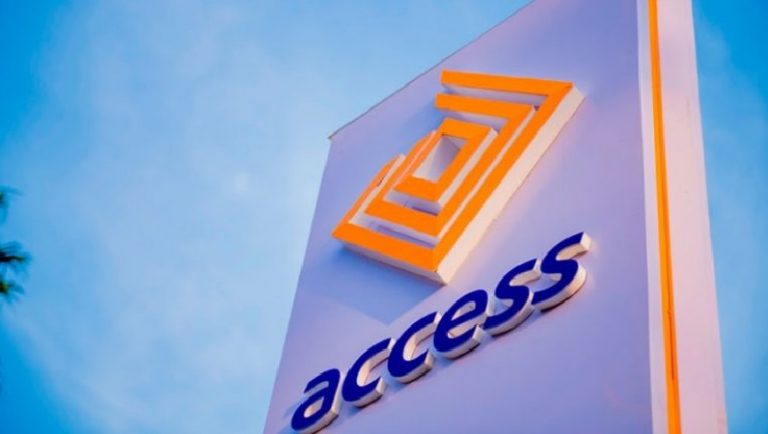Access Holdings’ H1 2025 Profit Dips 8% to N320.57bn Despite Strong Revenue Growth and Subsidiary Expansion


Access Holdings Plc, one of Nigeria’s largest financial services groups, has released its audited half-year financial results for the period ended June 30, 2025, reporting a pre-tax profit of N320.57 billion — an 8.12% year-on-year decline from N348.92 billion recorded in the corresponding period of 2024.
Post-tax profit also fell by 23.25% to N215.92 billion, compared to N281.33 billion in H1 2024.
Despite the earnings drop, top-line performance remained solid. Gross earnings rose by 13.81% to N2.50 trillion, reflecting the Group’s robust revenue base and diversified operations.
Register for Tekedia Mini-MBA edition 19 (Feb 9 – May 2, 2026): big discounts for early bird.
Tekedia AI in Business Masterclass opens registrations.
Join Tekedia Capital Syndicate and co-invest in great global startups.
Register for Tekedia AI Lab: From Technical Design to Deployment (begins Nov 15th).
“The financial results for the half year ended June 30, 2025, reflect the resilience of our business model, the diversification of our revenue streams, and the steady progress in executing our five-year strategic plan,” Access Holdings said in its report.
Banking Subsidiary Dominates Performance
The Group’s performance in H1 2025 was largely anchored by its banking subsidiary, which contributed the bulk of profitability, posting a pre-tax profit of N303 billion and a post-tax profit of N199.3 billion.
Interest income remained the key driver of growth, rising by 38.87% year-on-year to N2.04 trillion, representing over 58% of the full-year 2024 total. This growth was underpinned by stronger lending activities and higher yields on investment securities amid Nigeria’s elevated interest rate environment.

Interest income from loans and advances to customers grew by 36% to N944 billion, while earnings from investment securities jumped 46% to N956.56 billion, jointly accounting for over 93% of total interest income. This sharp rise in core earnings highlights the Group’s strategy of leveraging higher rates to maximize returns from its loan book and investments.
Interest Expenses and Impairments Pressure Bottom Line
Interest expenses grew at a slower pace than income, rising 10.53% to N1.10 trillion. Most of this came from customer deposits, which accounted for over 85% of the total. Deposits from customers increased marginally by 1.69% to N22.9 trillion, while deposits from financial institutions fell sharply by 47% to N4.94 trillion, reflecting reduced reliance on short-term institutional funding.
The resulting wide spread between income and expenses drove a 92% surge in net interest income to N984.63 billion. However, the Group faced heavier impairment charges, which rose 87% year-on-year to N230 billion. Loan loss provisions alone soared 240% to N209 billion, reflecting the impact of credit risk adjustments amid a challenging macroeconomic environment marked by inflationary pressures and currency volatility.

Even after accounting for impairments, net interest income after provisions stood at N754.56 billion — almost double last year’s level — reinforcing the Group’s strong core performance despite market headwinds.
Non-Interest Income and Subsidiary Growth
Access Holdings’ non-interest income also remained a bright spot. Fee and commission income grew significantly, driven by robust activity in digital channels and credit-related services. Credit-related fees rose 24% to N114 billion, while channels and e-business income surged 38% to N102 billion, reflecting growing digital adoption among customers.
Beyond the core banking business, the Group’s diversified non-bank subsidiaries delivered standout performances.
Access ARM Pensions recorded a 65.1% rise in pre-tax profit to N13.1 billion. At the same time, Hydrogen Payments — its financial technology arm — reported a 273% increase in pre-tax profit and processed N41.1 trillion in transactions, up 211% year-on-year. Access Insurance Brokers posted a 161% jump in pre-tax profit, with gross written premiums up 125%, while Oxygen X, the Group’s digital lending platform, generated N5.4 billion in revenue and N2.2 billion in profit.
Operating Costs and Market Factors
Despite strong revenue performance, higher operating expenses and a steep decline in fair value and foreign exchange gains weighed on profitability. Fair value and FX gains fell by 89% to N45.94 billion, from N407 billion in H1 2024, reflecting a tougher currency environment and lower revaluation gains.
Total assets rose 2.29% year-on-year to N42.45 trillion, supported by solid liquidity and a growing deposit base. Gross loans and advances to customers stood at N11.15 trillion, a slight 2.9% decline, as the Group adopted a cautious lending stance to preserve asset quality. Cash and cash equivalents rose by 10.09% to N5.75 trillion, highlighting improved liquidity buffers.
- Key Highlights (H1 2025 vs. H1 2024):
- Gross earnings: N2.499 trillion (+13.81% YoY)
- Interest income: N2.044 trillion (+38.87% YoY)
- Interest expenses: N1.060 trillion (+10.53% YoY)
- Net interest income: N983.63 billion (+91.79% YoY)
- EPS: N3.71 (-51.12% YoY)
- Loans and advances: N11.154 trillion (-2.90% YoY)
- Cash and cash equivalents: N5.748 trillion (+10.09% YoY)
- Total assets: N42.447 trillion (+2.29% YoY)
- Customer deposits: N22.905 trillion (+1.69% YoY)
Market Standing and Capital Strength
Access Holdings’ shares closed at N25 per share on Friday, October 24, 2025, representing a modest year-to-date gain of 4.82%. The Group remains one of the most capitalized financial institutions in Nigeria, having met and surpassed the Central Bank’s new recapitalization requirement. Its combined share capital and premium of N594.90 billion comfortably exceed the N500 billion threshold.
While profit dipped due to impairments and weaker FX gains, the strong revenue growth across banking and non-banking operations signals that the Group’s diversification strategy is taking root.
Analysts expect the Group’s continued expansion into payments, insurance, and pensions to buffer against future earnings volatility. The Group’s robust capital position also places it on a strong footing to sustain growth and absorb potential credit shocks in the second half of 2025.





